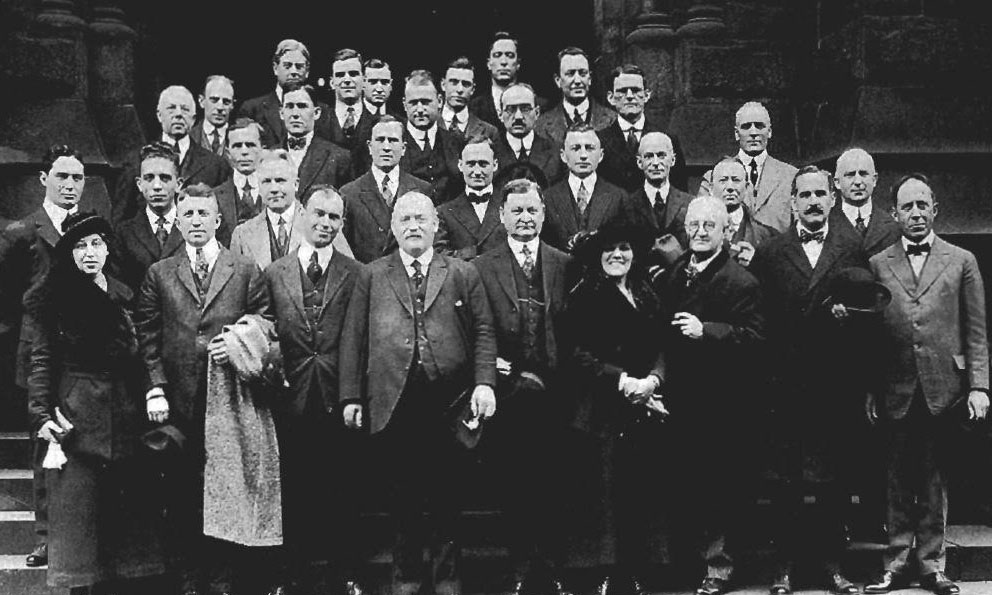
Is Going Global the Key to Growing Membership?
The Institute of Management Accountants has a membership that looks a lot different than it did 100 years ago. Thanks to global expansion, IMA grew to reach a historic milestone—100,000 members. Here’s how they did it.
In June, the Institute of Management Accountants kicks off a year-long celebration to celebrate its 100th birthday. Like other organizations that have been around for this long, they’re planning a big party, but they’re also celebrating something else—historic membership growth.
IMA recently hit the 100,000-member mark, due to fast-paced growth as a global organization over the past decade, says Jeff Thomson, CAE, president and CEO.
“If you go back 10 years ago, 90 percent of our membership was the U.S., and at most 10 percent was abroad,” Thomson says. “Now a majority of our membership is outside the U.S., and a very high proportion of our growth is outside the U.S.”
Part of their global expansion can be attributed to timing. Management accounting has seen a rise in prestige and value in emerging economies like India and China.
“The Chinese government said five or six years ago that management accounting is very important to the future,” Thomson says. “To some extent, it’s seizing on the opportunity, but we also recognize that globalization is a never-ending journey because you need to keep an ear open and learn about all your challenges—technology, culture, servicing local needs and wants, the list goes on.”
A variety of macro trends are bringing new opportunities for membership organizations. (Check out our cover story in the January/February issue of Associations Now for a sampling.) Last week, Thomson was in India speaking to members about technology trends reshaping the accounting profession, including automation, artificial intelligence, machine learning, and blockchain technology. While they pose threats to the profession, they’re also a key reason why IMA has grown stronger and more connected worldwide.
However, that doesn’t mean every organization should grow its membership globally. Before you make that leap abroad, Thomson says you need to identify your inherent value to the world.
“You see the allure of the numbers and may say, ‘Wow, China and India are big economies,’ but it’s not just there for the taking,” he says. “In business, if you don’t create, articulate, deliver, and nurture value, then you don’t have the opportunity to serve that market.”
This week, The New York Times published a cautionary tale on global expansion when it happens too quickly. The story has to do with a company’s failure to sniff out cultural and biological differences before entering a new international market.
As it turns out, some Chinese have a gene that limits the biochemical formation of human axillary odor. So when Unilever started selling deodorant before the 2008 Beijing Olympics, their pitch to eliminate odor from sweat, well, went with barely a whiff of detection.
“In order to succeed in these markets, you first must do more listening than speaking, meaning you need to spend a lot of time understanding every facet of the local market in which you intend to serve, especially if it’s not a market that you grew up in,” Thomson says. “You need to recognize a one-size-fits-all approach will be an ultimate failure.”
Tailored Expansion
IMA tailored its expansion into China in a variety of ways, all the way down to its infrastructure. It restructured its association management system to collect and store member information in both English and simplified Chinese. It also translated its products, services, and Certified Management Accountant exam into simplified Chinese.
“Investing in your infrastructure could mean technology, people, or compliance infrastructure,” Thomson says. “When you grow, you need to think about sustaining that growth.”
Wherever IMA grows, it relies on a competency model that starts within the country at the local level. That means hiring local staff, relying on a network of regional chapters, engaging with community partners, and delivering products and services to members through their preferred channels.
It also means being mindful of laws and regulations that might affect association activities in another country, like China’s Foreign NGO Law [ASAE member login required]. It’s a cost of doing business that requires ongoing investment from growth in new markets.
“You have to invest some of that return into good internal controls, risk management, compliance practices, and that’s what we’ve done whether it’s China, the Middle East, Europe, Asia Pacific, or the Americas,” Thomson says. “We’ll only grow with confidence and integrity, and that means good business process and compliance with local laws.”
This 1919 photo shows the founders of the National Association of Cost Accountants, an early incarnation of the Institute of Management Accountants. (Handout photo)





Comments